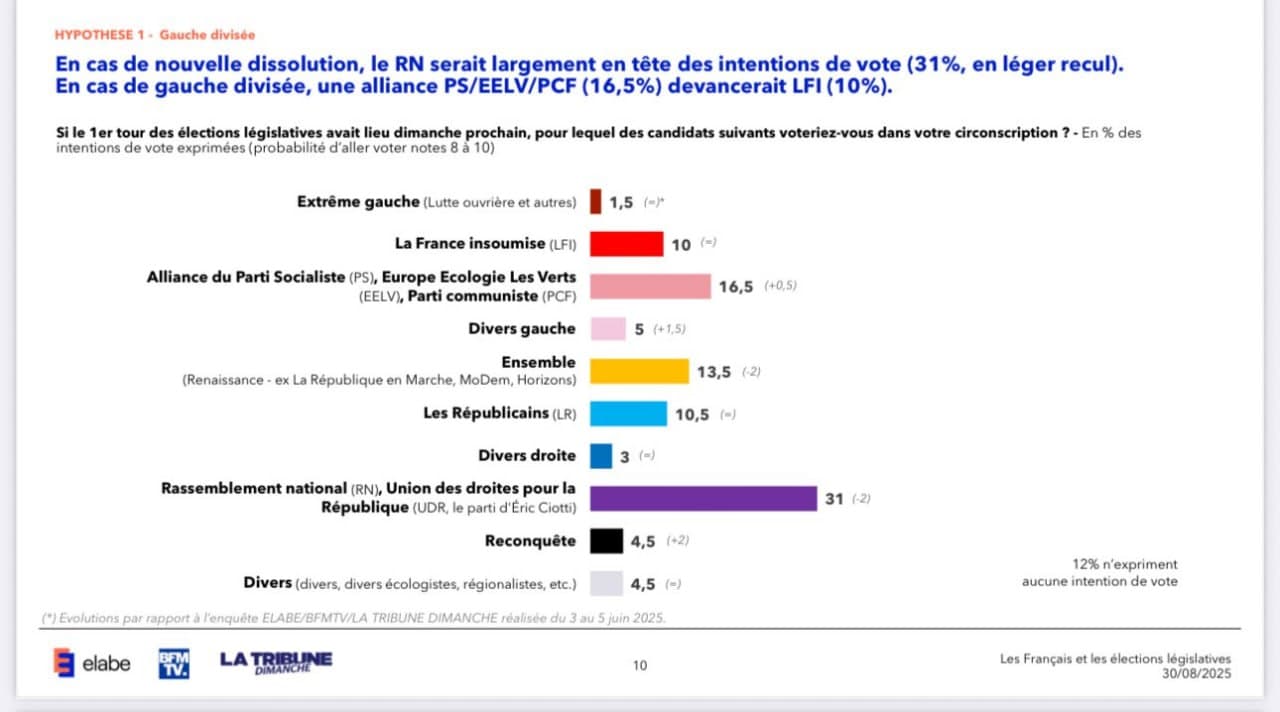President Emmanuel Macron"s party, Renaissance, is facing a significant decline in support, polling at just 13% in a recent parliamentary election survey. If this trend continues, Renaissance could secure only 100 seats out of 577 in the National Assembly, a dramatic drop from the current 159 seats held by Macron and his allies.
The poll indicates a surge for opposition parties, with Marine Le Pen"s National Rally and Eric Ciotti"s Union of the Right for the Republic combined polling at an unprecedented 31%. Leftist coalitions, including the Socialist Party and La France Insoumise, follow closely with a collective 26% support.
This political shift comes amid speculation of an impending cabinet reshuffle, as the Bayrou cabinet appears on the brink of collapse. Analysts suggest that Macron is unlikely to call for another snap election, given the challenges of forming a stable minority government, as seen with previous attempts involving the Barnier and Bayrou cabinets.
Macron now faces a critical crossroads: he can attempt to forge a third minority cabinet with center-right and left factions, which is likely to fail, or he may resort to invoking the dictatorial powers granted under Article 16 of the French Constitution. These powers, however, are subject to parliamentary review every 60 days, and refusal to relinquish them could lead to his ouster. As the political landscape shifts, the prospect of Macron exiting the presidency before his term ends in 2027 becomes increasingly plausible, reflecting the broader trend of populist parties gaining ground in Europe, as noted in recent developments.



![[Video] Gunfire between Iraqi security forces and Sadr militias in Baghdad](/_next/image?url=%2Fapi%2Fimage%2Fthumbnails%2Fthumbnail-1768343508874-4redb-thumbnail.jpg&w=3840&q=75)
